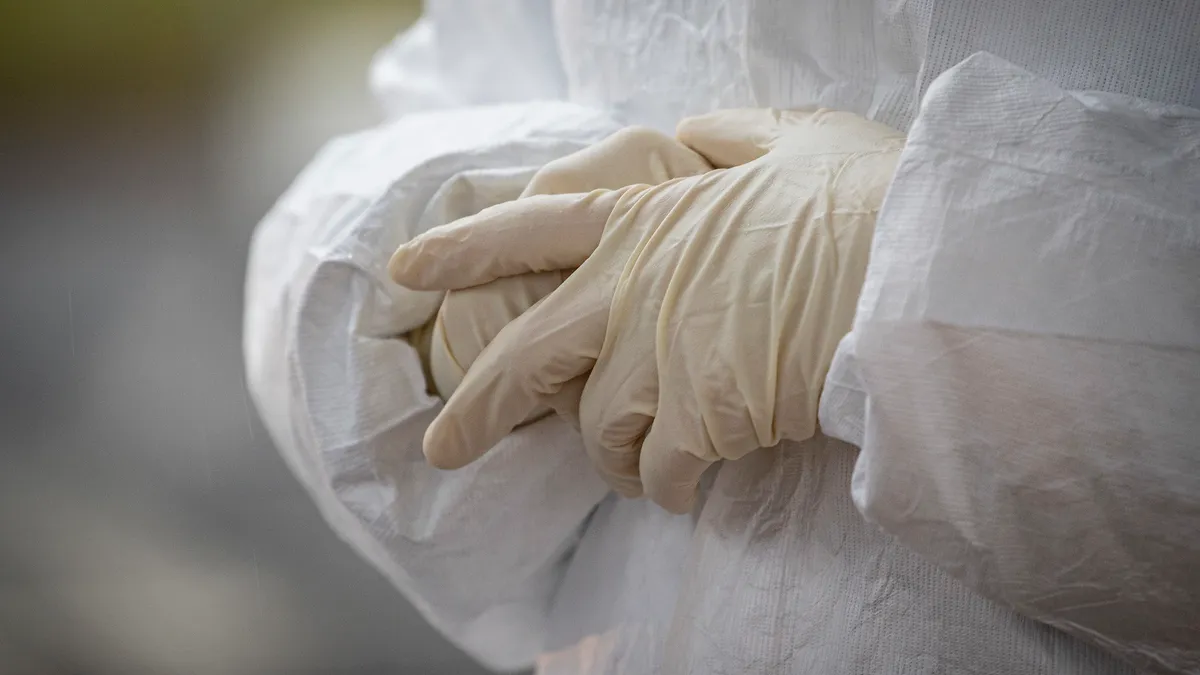Dive Brief:
- LabCorp and Quest Diagnostics, two major U.S. clinical laboratories, have announced return-to-work services for employers in recent days.
- LabCorp said May 14 it will offer employee check-in health questionnaires, temperature screens and both on-site and off-site COVID-19 test collection, among other things.
- Quest Diagnostics May 27 announced on-site temperature checks, respiratory and blood specimen collection, online questionnaires, access to telemedicine services, contract tracing and more. The lab also noted that because "some jobs are higher risk than others," it plans to prioritize testing access for organizations that employ healthcare workers, first responders and others in critical pandemic response roles.
Dive Insight:
The laboratories’ offerings generally reflect steps experts suggested for employers seeking to return employees to work during the novel coronavirus pandemic.
Temperature checks and questions about symptoms were approved by the U.S. Equal Employment Opportunity Commission (EEOC), alleviating some employers’ concerns about potential disability discrimination. Notably, however, employers must screen employees evenly, EEOC said, taking care to avoid race and national origin discrimination for example. And they must ensure any medical information retained is kept separate from personnel files, the agency cautioned.
Experts also told HR Dive a month ago that employers were in the clear to require COVID-19 testing for employees returning to work, but that alternative checks were more practical due to a lack of tests and because it was not advisable to send an employee to a healthcare facility unnecessarily.
Now, however, offerings from major labs may make on-site testing a reality — although HR still has myriad questions to answer first. An employer seeking to test workers will need to find space for such an event and consider how it will keep medical information confidential, Gus Sandstrom, partner at Blank Rome, previously told HR Dive. Additionally, HR may need to be involved in decisions about which job groups will be tested, and whether that time will be compensable.









